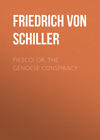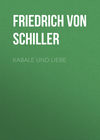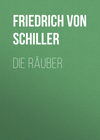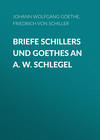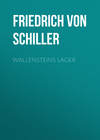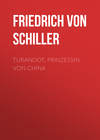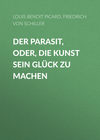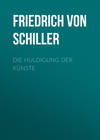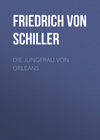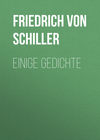Buch lesen: «Fiesco; or, the Genoese Conspiracy», Seite 2
MOOR. Your name is amongst other condemned sinners. (Presents a paper, and draws close to FIESCO, who is standing before a looking-glass and glancing over the paper – the MOOR steals round him, draws a dagger, and is going to stab.)
FIESCO (turning round dexterously, and seizing the MOOR'S arm.) Stop, scoundrel! (Wrests the dagger from him.)
MOOR (stamps in a frantic manner). Damnation! Your pardon – sire!
FIESCO (seizing him, calls with a loud voice). Stephano! Drullo! Antonio! (holding the MOOR by the throat.) Stay, my friend! – what hellish villany! (Servants enter.) Stay, and answer – thou hast performed thy task like a bungler. Who pays thy wages?
MOOR (after several fruitless attempts to escape). You cannot hang me higher than the gallows are —
FIESCO. No – be comforted – not on the horns of the moon, but higher than ever yet were gallows – yet hold! Thy scheme was too politic to be of thy own contrivance speak, fellow! who hired thee?
MOOR. Think me a rascal, sir, but not a fool.
FIESCO. What, is the scoundrel proud? Speak, sirrah! Who hired thee?
MOOR (aside). Shall I alone be called a fool? Who hired me? 'Twas but a hundred miserable sequins. Who hired me, did you ask? Prince Gianettino.
FIESCO (walking about in a passion). A hundred sequins? And is that all the value set upon Fiesco's head? Shame on thee, Prince of Genoa! Here, fellow (taking money from an escritoire), are a thousand for thee. Tell thy master he is a niggardly assassin. (MOOR looks at him with astonishment.) What dost thou gaze at? (MOOR takes up the money – lays it down – takes it up again, and looks at FIESCO with increased astonishment). What dost thou mean?
MOOR (throwing the money resolutely upon the table). Sir, that money I have not earned – I deserve it not.
FIESCO. Blockhead, thou hast deserved the gallows; but the offended elephant tramples on men not on worms. Were thy life worth but two words I would have thee hanged.
MOOR (bowing with an air of pleasure at his escape). Sir, you are too good —
FIESCO. Not towards thee! God forbid! No. I am amused to think my humor can make or unmake such a villain as thou, therefore dost thou go scot-free – understand me aright – I take thy failure as an omen of my future greatness – 'tis this thought that renders me indulgent, and preserves thy life.
MOOR (in a tone of confidence). Count, your hand! honor for honor. If any man in this country has a throat too much – command me, and I'll cut it – gratis.
FIESCO. Obliging scoundrel! He would show his gratitude by cutting throats wholesale!
MOOR. Men like me, sir, receive no favor without acknowledgment. We know what honor is.
FIESCO. The honor of cut-throats?
MOOR. Which is, perhaps, more to be relied on than that of your men of character. They break their oaths made in the name of God. We keep ours pledged to the devil.
FIESCO. Thou art an amusing villain.
MOOR. I rejoice to meet your approbation. Try me; you will find in me a man who is a thorough master of his profession. Examine me; I can show my testimonials of villany from every guild of rogues – from the lowest to the highest.
FIESCO. Indeed! (seating himself.) There are laws and systems then even among thieves. What canst thou tell me of the lowest class?
MOOR. Oh, sir, they are petty villains, mere pick-pockets. They are a miserable set. Their trade never produces a man of genius; 'tis confined to the whip and workhouse – and at most can lead but to the gallows.
FIESCO. A charming prospect! I should like to hear something of a superior class.
MOOR. The next are spies and informers – tools of importance to the great, who from their secret information derive their own supposed omniscience. These villains insinuate themselves into the souls of men like leeches; they draw poison from the heart, and spit it forth against the very source from whence it came.
FIESCO. I understand thee – go on —
MOOR. Then come the conspirators, villains that deal in poison, and bravoes that rush upon their victims from some secret covert. Cowards they often are, but yet fellows that sell their souls to the devil as the fees of their apprenticeship. The hand of justice binds their limbs to the rack or plants their cunning heads on spikes – this is the third class.
FIESCO. But tell me! When comes thy own?
MOOR. Patience, my lord – that is the very point I'm coming to – I have already passed through all the stages that I mentioned: my genius soon soared above their limits. 'Twas but last night I performed my masterpiece in the third; this evening I attempted the fourth, and proved myself a bungler.
FIESCO. And how do you describe that class?
MOOR (with energy). They are men who seek their prey within four walls, cutting their way through every danger. They strike at once, and, by their first salute, save him whom they approach the trouble of returning thanks for a second. Between ourselves they are called the express couriers of hell: and when Beelzebub is hungry they want but a wink, and he gets his mutton warm.
FIESCO. Thou art an hardened villain – such a tool I want. Give me thy hand – thou shalt serve me.
MOOR. Jest or earnest?
FIESCO. In full earnest – and I'll pay thee yearly a 'thousand sequins.
MOOR. Done, Lavagna! I am yours. Away with common business – employ me in whate'er you will. I'll be your setter or your bloodhound – your fox, your viper – your pimp, or executioner. I'm prepared for all commissions – except honest ones; in those I am as stupid as a block.
FIESCO. Fear not! I would not set the wolf to guard the lamb. Go thou through Genoa to-morrow and sound the temper of the people. Narrowly inquire what they think of the government, and of the house of Doria – what of me, my debaucheries, and romantic passion. Flood their brains with wine, until the sentiments of the heart flow over. Here's money – lavish it among the manufacturers —
MOOR. Sir!
FIESCO. Be not afraid – no honesty is in the case. Go, collect what help thou canst. To-morrow I will hear thy report.
[Exit.
MOOR (following). Rely on me. It is now four o'clock in the morning, by eight to-morrow you shall hear as much news as twice seventy spies can furnish.
[Exit.
SCENE X
An apartment in the house of VERRINA.
BERTHA on a couch, supporting her head on her hand —
VERRINA enters with a look of dejection.
BERTHA (starts up frightened). Heavens! He is here!
VERRINA (stops, looking at her with surprise). My daughter affrighted at her father!
BERTHA. Fly! fly! or let me fly! Father, your sight is dreadful to me!
VERRINA. Dreadful to my child! – my only child!
BERTHA (looking at him mournfully). Oh! you must seek another. I am no more your daughter.
VERRINA. What, does my tenderness distress you?
BERTHA. It weighs me down to the earth.
VERRINA. How, my daughter! do you receive me thus? Formerly, when I came home, my heart o'erburdened with sorrows, my Bertha came running towards me, and chased them away with her smiles. Come, embrace me, my daughter! Reclined upon thy glowing bosom, my heart, when chilled by the sufferings of my country, shall grow warm again. Oh, my child! this day I have closed my account with the joys of this world, and thou alone (sighing heavily) remainest to me.
BERTHA (casting a long and earnest look at him). Wretched father!
VERRINA (eagerly embracing her). Bertha! my only child! Bertha! my last remaining hope! The liberty of Genoa is lost – Fiesco is lost – and thou (pressing her more strongly, with a look of despair) mayest be dishonored!
BERTHA (tearing herself from him). Great God! You know, then —
VERRINA (trembling). What?
BERTHA. My virgin honor —
VERRINA (raging). What?
BERTHA. Last night —
VERRINA (furiously.) Speak! What!
BERTHA. Force. (Sinks down upon the side of the sofa.)
VERRINA (after a long pause, with a hollow voice). One word more, my daughter – thy last! Who was it?
BERTHA. Alas, what an angry deathlike paleness! Great God, support me! How his words falter! His whole frame trembles!
VERRINA. I cannot comprehend it. Tell me, my daughter – who?
BERTHA. Compose yourself, my best, my dearest father!
VERRINA (ready to faint). For God's sake – who?
BERTHA. A mask —
VERRINA (steps back, thoughtfully). No! That cannot be! – the thought is idle – (smiling to himself ). What a fool am I to think that all the poison of my life can flow but from one source! (Firmly addressing himself to BERTHA.) What was his stature, less than mine or taller?
BERTHA. Taller.
VERRINA (eagerly). His hair? Black, and curled?
BERTHA. As black as jet and curled?
VERRINA (retiring from her in great emotion). O God! my brain! my brain! His voice?
BERTHA. Was deep and harsh.
VERRINA (impetuously). What color was – No! I'll hear no more! 'His cloak! What color?
BERTHA. I think his cloak was green.
VERRINA (covering his face with his hands, falls on the couch). No more. This can be nothing but a dream!
BERTHA (wringing her hands). Merciful heaven! Is this my father?
VERRINA (after a pause, with a forced smile). Right! It serves thee right – coward Verrina! The villain broke into the sanctuary of the laws. This did not rouse thee. Then he violated the sanctuary of thy honor (starting up). Quick! Nicolo! Bring balls and powder – but stay – my sword were better. (To BERTHA.) Say thy prayers! Ah! what am I going to do?
BERTHA. Father, you make me tremble —
VERRINA. Come, sit by me, Bertha! (in a solemn manner.) Tell me, Bertha, what did that hoary-headed Roman, when his daughter – like you – how can I speak it! fell a prey to ignominy? Tell me, Bertha, what said Virginius to his dishonored daughter?
BERTHA (shuddering). I know not.
VERRINA. Foolish girl! He said nothing – but (rising hastily and snatching up a sword) he seized an instrument of death —
BERTHA (terrified, rushes into his arms). Great God! What would you do, my father?
VERRINA (throwing away the sword). No! There is still justice left in Genoa.
SCENE XI
SACCO, CALCAGNO, the former.
CALCAGNO. Verrina, quick! prepare! to-day begins the election week of the republic. Let us early to the Senate House to choose the new senators. The streets are full of people, you will undoubtedly accompany us (ironically) to behold the triumph of our liberty.
SACCO (to CALCAGNO). But what do I see? A naked sword! Verrina staring wildly! Bertha in tears!
CALCAGNO. By heavens, it is so. Sacco! some strange event has happened here.
VERRINA (placing two chairs). Be seated.
SACCO. Your looks, Verrina, fill us with apprehension.
CALCAGNO. I never saw you thus before – Bertha is in tears, or your grief would have seemed to presage our country's ruin.
VERRINA. Ruin! Pray sit down. (They both seat themselves.)
CALCAGNO. My friend, I conjure you —
VERRINA. Listen to me.
CALCAGNO (to SACCO). I have sad misgivings.
VERRINA. Genoese! you both know the antiquity of my family. Your ancestors were vassals to my own. My forefathers fought the battles of the state, their wives were patterns of virtue. Honor was our sole inheritance, descending unspotted from the father to the son. Can any one deny it?
SACCO. No.
CALCAGNO. No one, by the God of heaven!
VERRINA. I am the last of my family. My wife has long been dead. This daughter is all she left me. You are witnesses, my friends, how I have brought her up. Can anyone accuse me of neglect?
CALCAGNO. No. Your daughter is a bright example to her sex.
VERRINA. I am old, my friends. On this one daughter all my hopes were placed. Should I lose her, my race becomes extinct. (After a pause, with a solemn voice). I have lost her. My family is dishonored.
SACCO and CALCAGNO. Forbid it, heaven! (BERTHA on the couch, appears much affected.)
VERRINA. No. Despair not, daughter! These men are just and brave. If they feel thy wrongs they will expiate them with blood. Be not astonished, friends! He who tramples upon Genoa may easily overcome a helpless female.
SACCO and CALCAGNO (starting up with emotion). Gianettino Doria!
BERTHA (with a shriek, seeing BOURGOGNINO enter). Cover me, walls, beneath your ruins! My Scipio!
SCENE XII
BOURGOGNINO – the former.
BOURGOGNINO (with ardor). Rejoice, my love! I bring good tidings. Noble Verrina, my heaven now depends upon a word from you. I have long loved your daughter, but never dared to ask her hand, because my whole fortune was intrusted to the treacherous sea. My ships have just now reached the harbor laden with valuable cargoes. Now I am rich. Bestow your Bertha on me – I will make her happy. (BERTHA hides her face – a profound pause.)
VERRINA. What, youth! Wouldst thou mix thy heart's pure tide with a polluted stream?
BOURGOGNINO (clasps his hand to his sword, but suddenly draws it back). 'Twas her father said it.
VERRINA. No – every rascal in Italy will say it. Are you contented with the leavings of other men's repasts?
BOURGOGNINO. Old man, do not make me desperate.
CALCAGNO. Bourgognino! he speaks the truth.
BOURGOGNINO (enraged, rushing towards BERTHA). The truth? Has the girl then mocked me?
CALCAGNO. No! no! Bourgognino. The girl is spotless as an angel.
BOURGOGNINO (astonished). By my soul's happiness, I comprehend it not! Spotless, yet dishonored! They look in silence on each other. Some horrid crime hangs on their trembling tongues. I conjure you, friends, mock not thus my reason. Is she pure? Is she truly so? Who answers for her?
VERRINA. My child is guiltless.
BOURGOGNINO. What! Violence! (Snatches the sword from the ground.) Be all the sins of earth upon my bead if I avenge her not! Where is the spoiler?
VERRINA. Seek him in the plunderer of Genoa! (BOURGOGNINO struck with astonishment – VERRINA walks up and down the room in deep thought, then stops.) If rightly I can trace thy counsels, O eternal Providence! it is thy will to make my daughter the instrument of Genoa's deliverance. (Approaching her slowly, takes the mourning crape from his arm, and proceeds in a solemn manner.) Before the heart's blood of Doria shall wash away this foul stain from thy honor no beam of daylight shall shine upon these cheeks. Till then (throwing the crape over her) be blind! (A pause – the rest look upon him with silent astonishment; he continues solemnly, his hand upon BERTHA'S head.) Cursed be the air that shall breathe on thee! Cursed the sleep that shall refresh thee! Cursed every human step that shall come to sooth thy misery! Down, into the lowest vault beneath my house! There whine, and cry aloud! (pausing with inward horror.) Be thy life painful as the tortures of the writhing worm – agonizing as the stubborn conflict between existence and annihilation. This curse lie on thee till Gianettino shall have heaved forth his dying breath. If he escape his punishment, then mayest thou drag thy load of misery throughout the endless circle of eternity!
[A deep silence – horror is marked on the countenances of all present.
VERRINA casts a scrutinizing look at each of them.
BOURGOGNINO. Inhuman father! What is it thou hast done? Why pour forth this horrible and monstrous curse against thy guiltless daughter?
VERRINA. Youth, thou say'st true! – it is most horrible. Now who among you will stand forth and prate still of patience and delay? My daughter's fate is linked with that of Genoa. I sacrifice the affections of a father to the duties of a citizen. Who among us is so much a coward as to hesitate in the salvation of his country, when this poor guiltless being must pay for his timidity with endless sufferings? By heavens, 'twas not a madman's speech! I have sworn an oath, and till Doria lie in the agonies of death I will show no mercy to my child. No – not though, like an executioner, I should invent unheard-of torments for her, or with my own hands rend her innocent frame piecemeal on the barbarous rack. You shudder – you stare at me with ghastly faces. Once more, Scipio – I keep her as a hostage for the tyrant's death. Upon this precious thread do I suspend thy duty, my own, and yours (to SACCO and CALCAGNO). The tyrant of Genoa falls, or Bertha must despair – I retract not.
BOURGOGNINO (throwing himself at BERTHA'S feet). He shall fall – shall fall a victim to Genoa. I will as surely sheathe this sword in Doria's heart as upon thy lips I will imprint the bridal kiss. (Rises.)
VERRINA. Ye couple, the first that ever owed their union to the Furies, join hands! Thou wilt sheathe thy sword in Doria's heart? Take her! she is thine!
CALCAGNO (kneeling). Here kneels another citizen of Genoa and lays his faithful sword before the feet of innocence. As surely may Calcagno find the way to heaven as this steel shall find its way to Gianettino's heart! (Rises.)
SACCO (kneeling). Last, but not less determined, Raffaelle Sacco kneels. If this bright steel unlock not the prison doors of Bertha, mayest thou, my Saviour, shut thine ear against my dying prayers! (Rises.)
VERRINA (with a calm look). Through me Genoa thanks you. Now go, my daughter; rejoice to be the mighty sacrifice for thy country!
BOURGOGNINO (embracing her as she is departing). Go! confide in God – and Bourgognino. The same day shall give freedom to Bertha and to Genoa.
[BERTHA retires.
SCENE XIII
The former – without BERTHA.
CALCAGNO. Genoese, before we take another step, one word —
VERRINA. I guess what you would say.
CALCAGNO. Will four patriots alone be sufficient to destroy this mighty hydra? Shall we not stir up the people to rebellion, or draw the nobles in to join our party?
VERRINA. I understand you. Now hear my advice; I have long engaged a painter who has been exerting all his skill to paint the fall of Appius Claudius. Fiesco is an adorer of the arts, and soon warmed by ennobling scenes. We will send this picture to his house, and will be present when he contemplates it. Perhaps the sight may rouse his dormant spirit. Perhaps —
BOURGOGNINO. No more of him. Increase the danger, not the sharers in it. So valor bids. Long have I felt a something within my breast that nothing would appease. What 'twas now bursts upon me (springing up with enthusiasm); 'twas a tyrant!
[The scene closes
ACT II
SCENE I. —
An Ante-chamber in the Palace of FIESCO.
LEONORA and ARABELLA.
ARABELLA. No, no, you were mistaken: your eyes were blinded by jealousy.
LEONORA. It was Julia to the life. Seek not to persuade me otherwise. My picture was suspended by a sky-blue ribbon: this was flame-colored. My doom is fixed irrevocably.
SCENE II
The former and JULIA.
JULIA (entering in an affected manner). The Count offered me his palace to see the procession to the senate-house. The time will be tedious. You will entertain me, madam, while the chocolate is preparing.
[ARABELLA goes out, and returns soon afterwards.
LEONORA. Do you wish that I should invite company to meet you?
JULIA. Ridiculous! As if I should come hither in search of company. You will amuse me, madam (walking up and down, and admiring herself ), if you are able, madam. At any rate I shall lose nothing.
ARABELLA (sarcastically). Your splendid dress alone will be the loser. Only think how cruel it is to deprive the eager eyes of our young beaux of such a treat! Ah! and the glitter of your sparkling jewels on which it almost wounds the sight to look. Good heavens! You seem to have plundered the whole ocean of its pearls.
JULIA (before a glass). You are not accustomed to such things, miss! But hark ye, miss! pray has your mistress also hired your tongue? Madam, 'tis fine, indeed, to permit your domestics thus to address your guests.
LEONORA. 'Tis my misfortune, signora, that my want of spirits prevents me from enjoying the pleasure of your company.
JULIA. An ugly fault that, to be dull and spiritless. Be active, sprightly, witty! Yours is not the way to attach your husband to you.
LEONORA. I know but one way, Countess. Let yours ever be the sympathetic medium.
JULIA (pretending not to mind her). How you dress, madam! For shame! Pay more attention to your personal appearance! Have recourse to art where nature has been unkind. Put a little paint on those cheeks, which look so pale with spleen. Poor creature! Your puny face will never find a bidder.
LEONORA (in a lively manner to ARABELLA). Congratulate me, girl. It is impossible I can have lost my Fiesco; or, if I have, the loss must be but trifling. (The chocolate is brought, ARABELLA pours it out.)
JULIA. Do you talk of losing Fiesco? Good God! How could you ever conceive the ambitious idea of possessing him? Why, my child, aspire to such a height? A height where you cannot but be seen, and must come into comparison with others. Indeed, my dear, he was a knave or a fool who joined you with FIESCO. (Taking her hand with a look of compassion.) Poor soul! The man who is received in the assemblies of fashionable life could never be a suitable match for you. (She takes a dish of chocolate.)
LEONORA (smiling at ARABELLA). If he were, he would not wish to mix with such assemblies.
JULIA. The Count is handsome, fashionable, elegant. He is so fortunate as to have formed connections with people of rank. He is lively and high-spirited. Now, when he severs himself from these circles of elegance and refinement, and returns home warm with their impressions, what does he meet? His wife receives him with a commonplace tenderness; damps his fire with an insipid, chilling kiss, and measures out her attentions to him with a niggardly economy. Poor husband! Here, a blooming beauty smiles upon him – there he is nauseated by a peevish sensibility. Signora, signora, for God's sake consider, if he have not lost his understanding, which will he choose?
LEONORA (offering her a cup of chocolate). You, madam – if he have lost it.
JULIA. Good! This sting shall return into your own bosom. Tremble for your mockery! But before you tremble – blush!
LEONORA. Do you then know what it is to blush, signora? But why not? 'Tis a toilet trick.
JULIA. Oh, see! This poor creature must be provoked if one would draw from her a spark of wit. Well – let it pass this time. Madam, you were bitter. Give me your hand in token of reconciliation.
LEONORA (offering her hand with a significant look). Countess, my anger ne'er shall trouble you.
JULIA (offering her hand). Generous, indeed! Yet may I not be so, too? (Maliciously.) Countess, do you not think I must love that person whose image I bear constantly about me?
LEONORA (blushing and confused). What do you say? Let me hope the conclusion is too hasty.
JULIA. I think so, too. The heart waits not the guidance of the senses – real sentiment needs no breastwork of outward ornament.
LEONORA. Heavens! Where did you learn such a truth?
JULIA. 'Twas in mere compassion that I spoke it; for observe, madam, the reverse is no less certain. Such is Fiesco's love for you. (Gives her the picture, laughing maliciously.)
LEONORA (with extreme indignation). My picture! Given to you! (Throws herself into a chair, much affected.) Cruel, Fiesco!
JULIA. Have I retaliated? Have I? Now, madam, have you any other sting to wound me with? (Goes to side scene.) My carriage! My object is gained. (To LEONORA, patting her cheek.) Be comforted, my dear; he gave me the picture in a fit of madness.
[Exeunt JULIA and ARABELLA.
SCENE III
LEONORA, CALCAGNO entering.
CALCAGNO. Did not the Countess Imperiali depart in anger? You, too, so excited, madam?
LEONORA (violently agitated.) No! This is unheard-of cruelty.
CALCAGNO. Heaven and earth! Do I behold you in tears?
LEONORA. Thou art a friend of my inhuman – Away, leave my sight!
CALCAGNO. Whom do you call inhuman? You affright me —
LEONORA. My husband. Is he not so?
CALCAGNO. What do I hear!
LEONORA. 'Tis but a piece of villany common enough among your sex!
CALCAGNO (grasping her hand with vehemence). Lady, I have a heart for weeping virtue.
LEONORA. You are a man – your heart is not for me.
CALCAGNO. For you alone – yours only. Would that you knew how much, how truly yours —
LEONORA. Man, thou art untrue. Thy words would be refuted by thy actions —
CALCAGNO. I swear to you —
LEONORA. A false oath. Cease! The perjuries of men are so innumerable 'twould tire the pen of the recording angel to write them down. If their violated oaths were turned into as many devils they might storm heaven itself, and lead away the angels of light as captives.
CALCAGNO. Nay, madam, your anger makes you unjust. Is the whole sex to answer for the crime of one?
LEONORA. I tell thee in that one was centred all my affection for the sex. In him I will detest them all.
CALCAGNO. Countess, – you once bestowed your hand amiss. Would you again make trial, I know one who would deserve it better.
LEONORA. The limits of creation cannot bound your falsehoods. I'll hear no more.
CALCAGNO. Oh, that you would retract this cruel sentence in my arms!
LEONORA (with astonishment). Speak out. In thy arms!
CALCAGNO. In my arms, which open themselves to receive a forsaken woman, and to console her for the love she has lost.
LEONORA (fixing her eyes on him). Love?
CALCAGNO (kneeling before her with ardor). Yes, I have said it. Love, madam! Life and death hang on your tongue. If my passion be criminal then let the extremes of virtue and vice unite, and heaven and hell be joined together in one perdition.
LEONORA (steps back indignantly, with a look of noble disdain). Ha! Hypocrite! Was that the object of thy false compassion? This attitude at once proclaims thee a traitor to friendship and to love. Begone forever from my eyes! Detested sex! Till now I thought the only victim of your snares was woman; nor ever suspected that to each other you were so false and faithless.
CALCAGNO (rising, confounded). Countess!
LEONORA. Was it not enough to break the sacred seal of confidence? but even on the unsullied mirror of virtue does this hypocrite breathe pestilence, and would seduce my innocence to perjury.
CALCAGNO (hastily). Perjury, madam, you cannot be guilty of.
LEONORA. I understand thee – thou thoughtest my wounded pride would plead in thy behalf. (With dignity). Thou didst not know that she who loves Fiesco feels even the pang that rends her heart ennobling. Begone! Fiesco's perfidy will not make Calcagno rise in my esteem – but – will lower humanity. [Exit hastily.
CALCAGNO (stands as if thunderstruck, looks after her, then striking his forehead). Fool that I am. [Exit.
SCENE IV
The MOOR and FIESCO.
FIESCO. Who was it that just now departed?
MOOR. The Marquis Calcagno.
FIESCO. This handkerchief was left upon the sofa. My wife has been here.
MOOR. I met her this moment in great agitation.
FIESCO. This handkerchief is moist (puts it in his pocket). Calcagno here? And Leonora agitated? This evening thou must learn what has happened.
MOOR. Miss Bella likes to hear that she is fair. She will inform me.
FIESCO. Well – thirty hours are past. Hast thou executed my commission?
MOOR. To the letter, my lord.
FIESCO (seating himself). Then tell me how they talk of Doria, and of the government.
MOOR. Oh, most vilely. The very name of Doria shakes them like an ague-fit. Gianettino is as hateful to them as death itself – there's naught but murmuring. They say the French have been the rats of Genoa, the cat Doria has devoured them, and now is going to feast upon the mice.
FIESCO. That may perhaps be true. But do they not know of any dog against that cat?
MOOR (with an affected carelessness). The town was murmuring much of a certain – poh – why, I have actually forgotten the name.
FIESCO (rising). Blockhead! That name is as easy to be remembered as 'twas difficult to achieve. Has Genoa more such names than one?
MOOR. No – it cannot have two Counts of Lavagna.
FIESCO (seating himself). That is something. And what do they whisper about my gayeties?
MOOR (fixing his eyes upon him). Hear me, Count of Lavagna! Genoa must think highly of you. They can not imagine why a descendant of the first family – with such talents and genius – full of spirit and popularity – master of four millions – his veins enriched with princely blood – a nobleman like Fiesco, whom, at the first call, all hearts would fly to meet —
FIESCO (turns away contemptuously). To hear such things from such a scoundrel!
MOOR. Many lamented that the chief of Genoa should slumber over the ruin of his country. And many sneered. Most men condemned you. All bewailed the state which thus had lost you. A Jesuit pretended to have smelt out the fox that lay disguised in sheep's clothing.
FIESCO. One fox smells out another. What say they to my passion for the Countess Imperiali?
MOOR. What I would rather be excused from repeating.
FIESCO. Out with it – the bolder the more welcome. What are their murmurings?
MOOR. 'Tis not a murmur. At all the coffee-houses, billiard-tables, hotels, and public walks – in the market-place, at the Exchange, they proclaim aloud —
FIESCO. What? I command thee!
MOOR (retreating). That you are a fool!
FIESCO. Well, take this sequin for these tidings. Now have I put on a fool's cap that these Genoese may have wherewith to rack their wits. Next I will shave my head, that they may play Merry Andrew to my Clown. How did the manufacturers receive my presents?
MOOR (humorously). Why, Mr. Fool, they looked like poor knaves —
FIESCO. Fool? Fellow, art thou mad?
MOOR. Pardon! I had a mind for a few more sequins.
FIESCO (laughing, gives him another sequin). Well. "Like poor knaves."
MOOR. Who receive pardon at the very block. They are yours both soul and body.
FIESCO. I'm glad of it. They turn the scale among the populace of Genoa.
MOOR. What a scene it was! Zounds! I almost acquired a relish for benevolence. They caught me round the neck like madmen. The very girls seemed in love with my black visage, that's as ill-omened as the moon in an eclipse. Gold, thought I, is omnipotent: it makes even a Moor look fair.
FIESCO. That thought was better than the soil which gave it birth. These words are favorable; but do they bespeak actions of equal import?
MOOR. Yes – as the murmuring of the distant thunder foretells the approaching storm. The people lay their heads together – they collect in parties – break off their talk whenever a stranger passes by. Throughout Genoa reigns a gloomy silence. This discontent hangs like a threatening tempest over the republic. Come, wind, then hail and lightning will burst forth.
